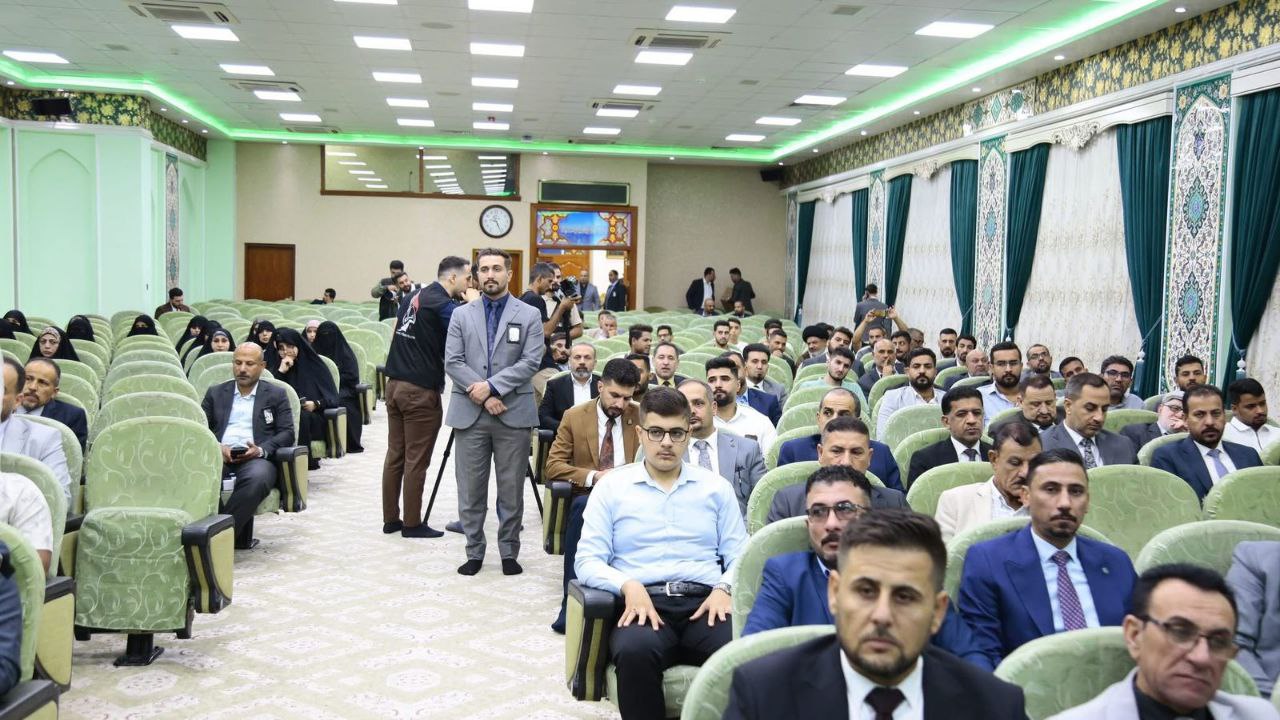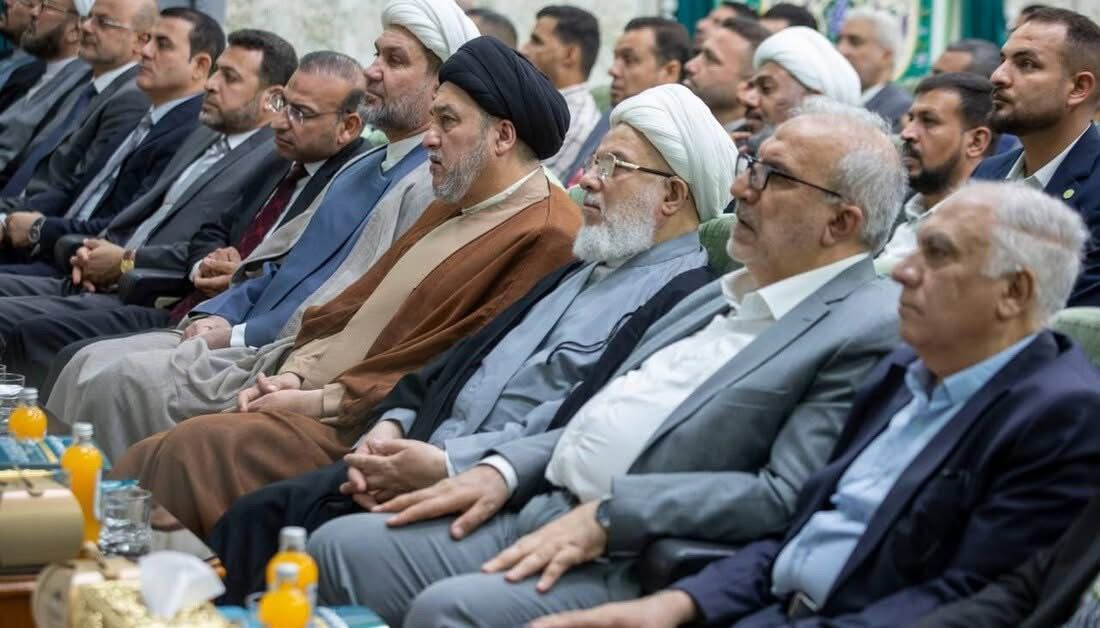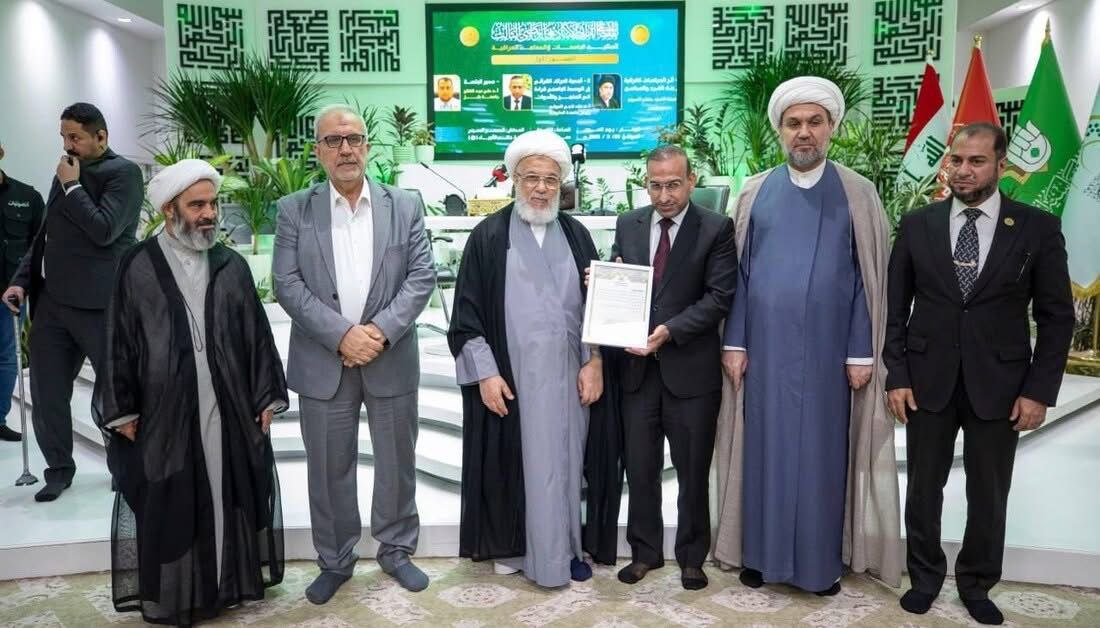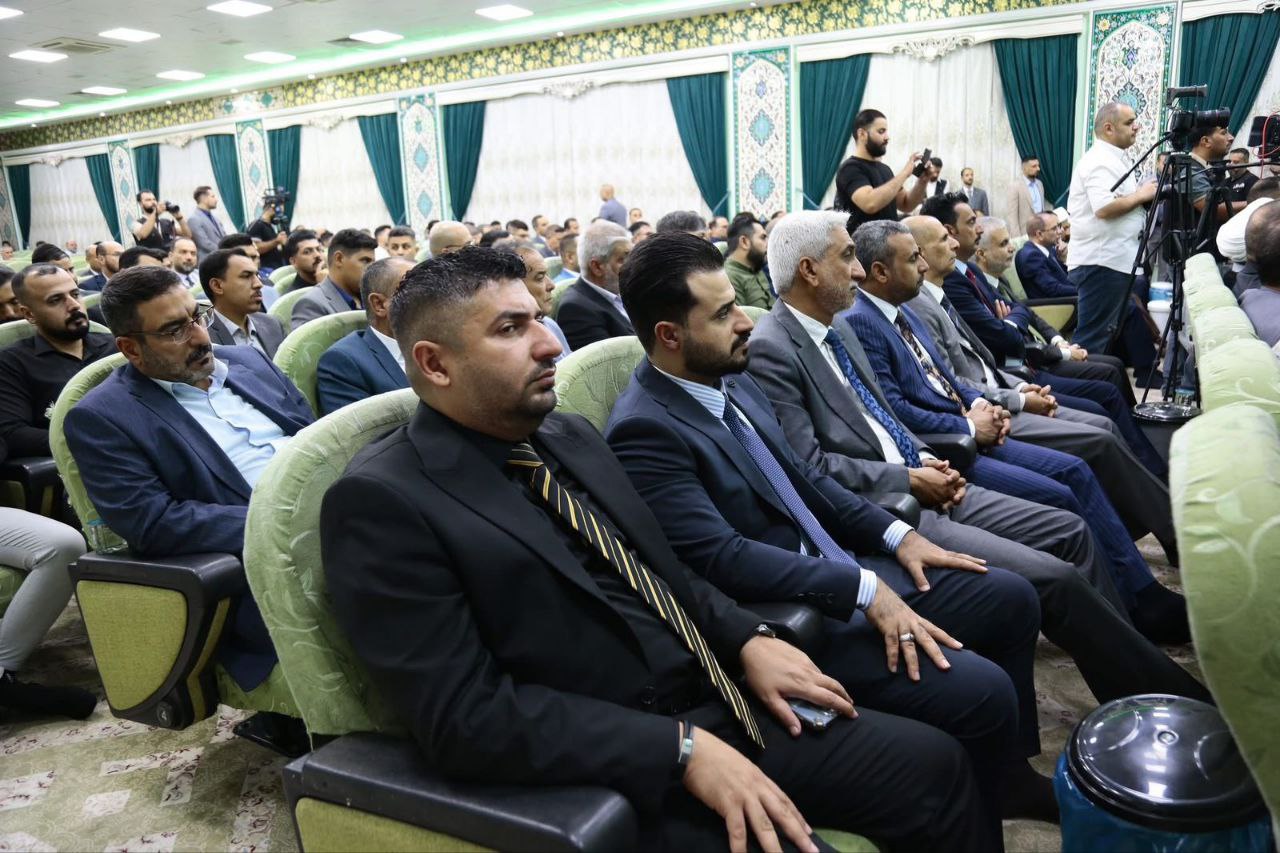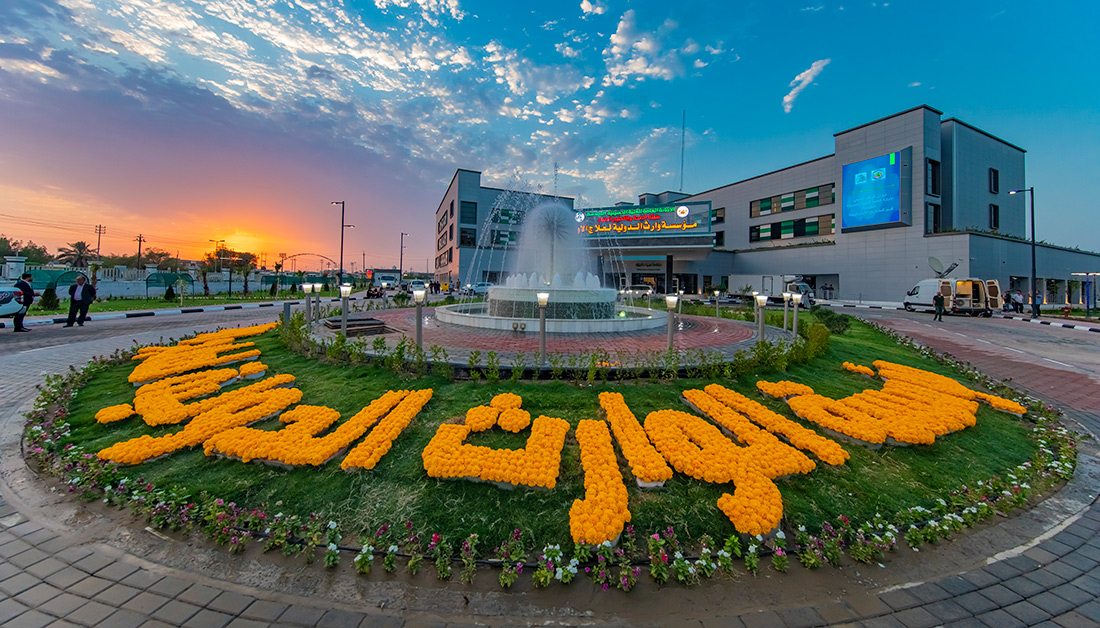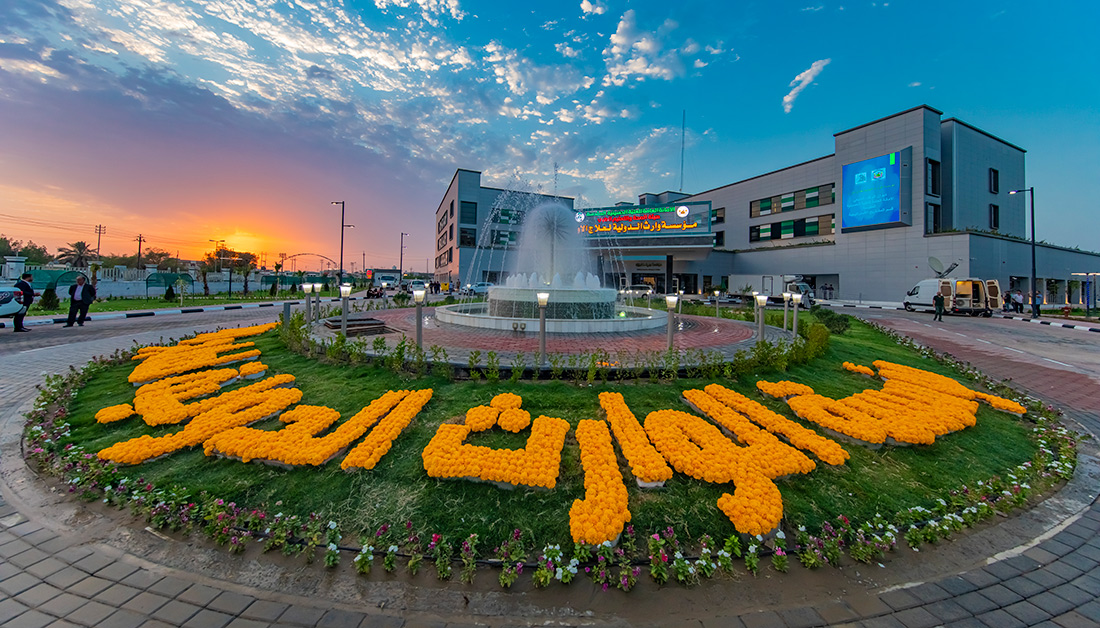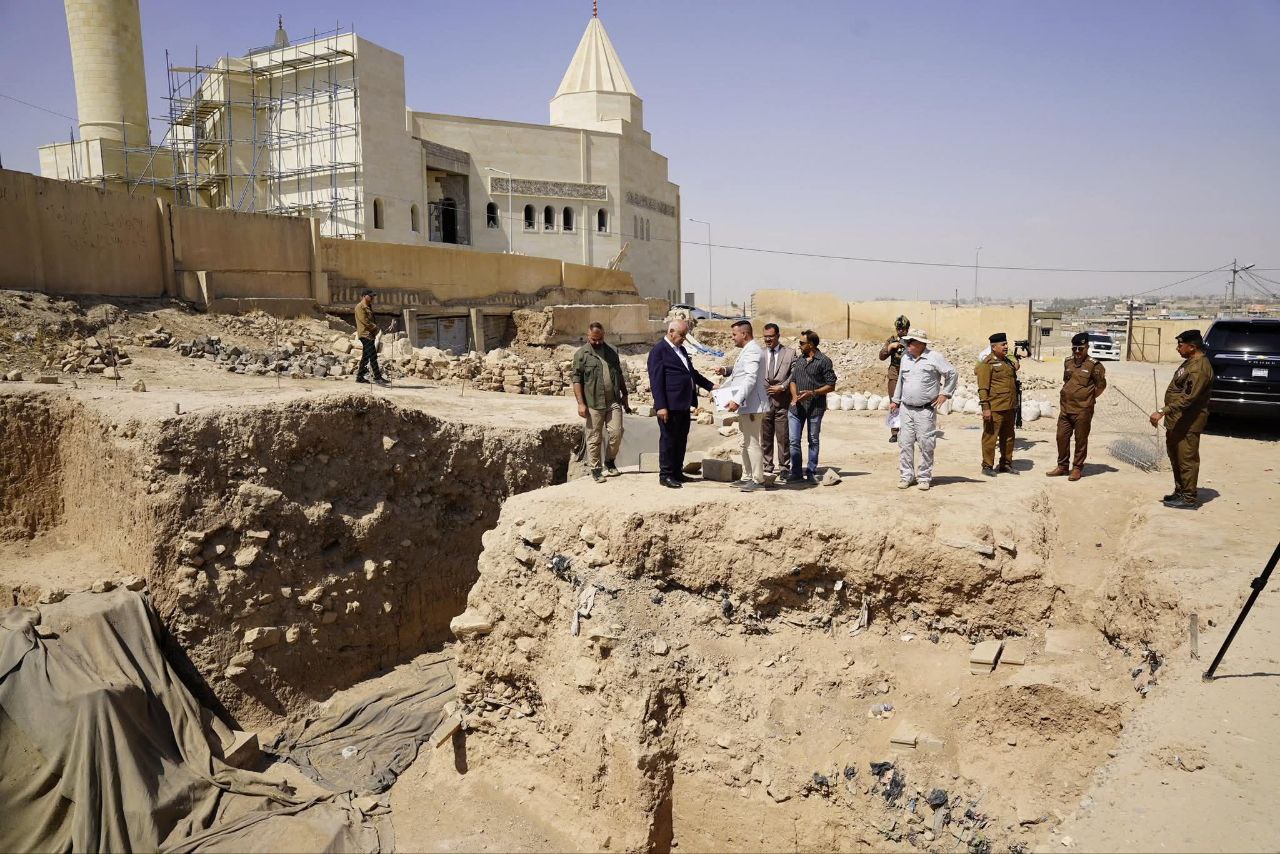Imam Hussain Holy Shrine hosts Third National Academic Quranic Forum for University and Institute Professors Across Iraq
On Saturday, September 20, the Khatim Al-Anbiya Hall within the sacred courtyard of the Holy Shrine of Imam Hussain (peace be upon him) hosted the Third National Academic Quranic Forum for professors from Iraqi universities and institutes. The forum is part of the broader National Quranic Project in Universities, aimed at integrating Quranic values and scholarship within academic institutions.
The event was attended by the representative of the Supreme Religious Authority, the Secretary General of the Imam Hussain Holy Shrine, as well as a distinguished group of religious scholars, academic leaders, and university professors from various governorates across Iraq.
Speaking on the occasion, the head of the Holy Quran House, affiliated with the shrine, highlighted the forum’s objectives: “This initiative seeks to deepen Quranic engagement in the academic environment, strengthen faith-based values, and foster a balanced intellectual atmosphere that harmonizes modern sciences with the spirit of the Holy Quran.”
He added that the forum also aims to “Build bridges of collaboration between Iraqi universities and specialized Quranic centers, contributing to curriculum development and enhancing Quranic content within student activities.”
The forum featured research presentations and dialogue sessions led by professors and researchers specializing in Quranic sciences, exegesis, linguistics, and sociology. These sessions offered innovative perspectives and actionable ideas to advance the role of the Quran within higher education, as well as to explore effective strategies for incorporating Quranic studies into academic research and university programs.
It is worth noting that this forum is part of an ongoing series of Quranic initiatives organized by the Holy Shrine of Imam Hussain (peace be upon him), reaffirming its leadership role in promoting Quranic knowledge and preserving Islamic identity within educational and academic institutions.
Ebrahim Al-Owainy
